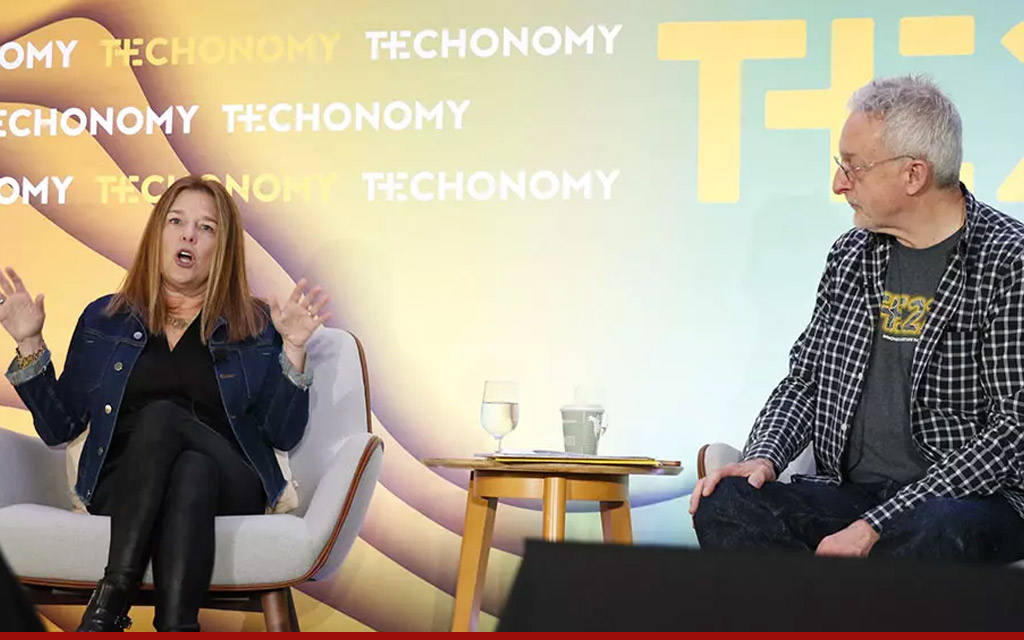Ask 10 people to define the metaverse and you’ll get 15 different answers. The recent conference served to highlight the metaversal concerns of digital sophisticates.
The word “metaverse” is one of three in the running to be crowned Oxford Word of the Year in a competition run by the Oxford University Press —publisher of the OED. But taking the temperature of the current metaverse landscape reveals a severe case of too much talk and not much traction.
Techonomy community members, smarter than your average bears, of course, and typically known for embracing new innovations, gave the metaverse and its pundits a solid thrashing at the recent Techonomy 2022. At a well attended breakfast roundtable that I moderated, the metaverse may not have been summarily rejected by the crowd, but there was a lot of curmudgeonly skepticism. And more than plenty confusion about exactly how the metaverse might work.
Fair enough: there is no shortage of good reasons for doubt. Techonomy’s conference-goers generally scoffed that anyone would willingly choose to look at the world through isolating, cumbersome and expensive VR headsets. There was even more skepticism about dressing up as an avatar to head off to a digital fantasyland, often as a leg-less body or torso-less head. E-commerce in the metaverse was relegated by some to a “gamer thing.”
There were also strong calls for governance and a general lack of buy-in surrounding how a decentralized metaverse might work. “Wandering around lost in empty spaces” was a recurring sentiment. Smart contracts, NFTs and the prospect of interoperability that could power the metaverse were widely regarded as just more tech-speak goobledygook. Metaverse pundits were criticized for adding to the confusion with wild predictions and unintelligible metaverse-speak.
Meta, the company that aimed to reconstruct its image as epicenter of the metaverse, hasn’t exactly created clearer definition. Its version revolves around donning virtual reality goggles, which makes it complicit in spreading misunderstanding.
The more likely real future, I believe, is that today’s popular Metaverse-ish destinations like Roblox, Fortnite, Decentraland and Sandbox will triumph. And none of them require special hardware. Later that morning, on the main stage, Activate co-founder and media consultant par excellence Michael Wolf showed data from all the major platforms, underscoring the point that the metaverse will likely be cross-platform. Media consumption across all platforms is up, but the ones most poised to move fluidly to the metaverse are the ones with the most checkboxes in the image from his slides below. Those companies are meeting gamers where they are.

Despite periodic efforts to create in-world high-brow destinations for fashion, art and consumer brands, most metaverses today are built mainly to groom young gamers for a metaverse still to come. The 10-to-13 year olds in my family seem mostly to play the same kind of basic mind-numbing games as have generations before. But they do so collaboratively, in the cloud, using avatars. That’s a step towards the metaverse but not all the way there.
They frequent places like Arsenal, a team shoot-‘em-up based on blocky Roblox characters, or Brookhaven, a role-playing Roblox game. I showed them corporate destinations like WalmartLand and Forever21 Shop City, shopping games created to attract a new generation. But they were underwhelmed. They did, however, like Busy Business on Roblox, where you build your own business in a simulated world. Classic gaming patterns never seem to get old. They just find new media.
Conference speaker John Riccitiello, CEO of Unity, the software company that provides the platform and tools most content creators use to bring metaverse worlds to life, acknowledged at breakfast that he sees a disillusionment with VR. But he believes the next two years will see both price drops in hardware as well as increasingly mature software. The experience is the thing, he says: “The metaverse isn’t different than any other platform we’ve experienced. People want something to do when they get there.”
Virtual reality glasses will have an important place at least in the enterprise, no question. Metaverse ways are emerging to build prototypes of products and buildings, and for playing what-if with everything from city planning to medical treatments. Another real practical business trend is so-called “digital twins” that recreate reality in the metaverse for planning and monitoring systems. As for the coming consumer experience, Riccitiello is bullish on play in immersive environments – he expects a natural evolution of early games and experiences like Sims or Second Life will emerge.
Later at the Summit, Michael Wolf of Activate presented extensive data about entertainment and tech trends–who’s watching what, how much time they spend, and on what devices. Towards the end, almost as a non-sequitur, he displayed an instructive diagram–a kind of map of the metaverse (see below). Web3 technologies provide the structural underpinning; the metaverse is the experiential layer in his proposed construct. “The metaverse will be the user interface for Web3, similar to the role the browser played to the internet,” is the headline for Wolf’s slide.

The metaverse backlash is real. Meta has lost almost three-quarters of its market valuation since announcing it was planting its flag in the the metaverse. Stories of empty metaverse wastelands and the plummeting value of NFTs only add fuel to the fire. Still, advertisers are flocking to this inchoate set of systems already, and worlds with concerts, sports, arts and many sorts of entertainment are being invented.
Dr. Louis Rosenberg, one my oft-quoted metaverse true believers, says the metaverse is “inevitable.” In this VentureBeat article he nails what ailed us in our discussion at Techonomy. “The general public, he says, “is still confused about what ‘the metaverse’ is and how it will benefit society. You’d think this would be clear by now, but even simple definitions of the metaverse are hard to come by.”
Rosenberg blames Web3 influencers for describing the metaverse in terms of blockchains, cryptocurrencies and NFTs. While these are profoundly useful technologies, he says, they are no more relevant to the metaverse than things we’re already using like 5G, GPS or GPUs: “We get mired in the infrastructure and the ignominy of where we’re at today, ignoring the big picture a 3D immersive experience promises.”
Source: https://techonomy.com/metaverse-hype-befuddles-everyone-even-techonomists/




